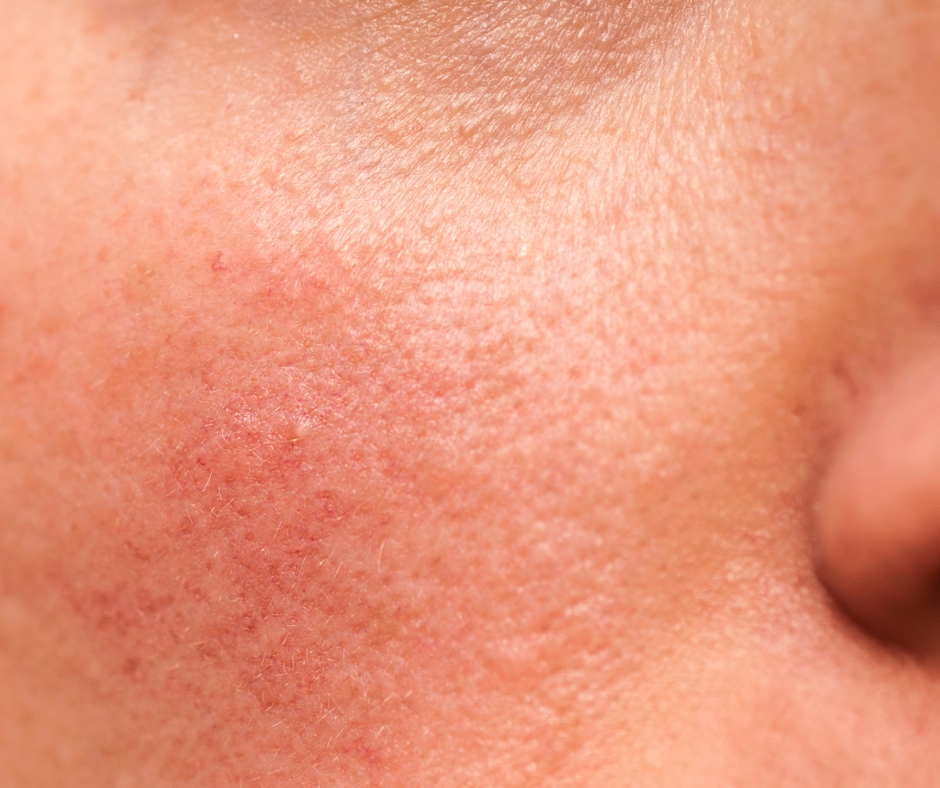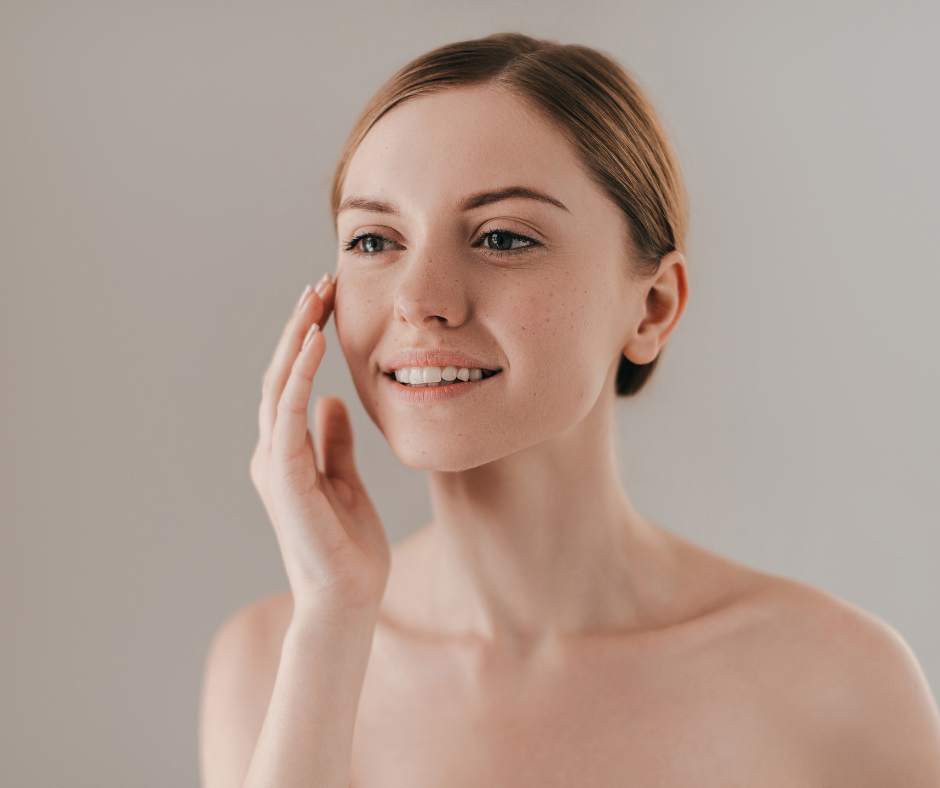Redness & Rosacea
Rosacea
Do you experience constant flushing in your face or have cheeks that look sunburned even though you haven’t been in the sun? Maybe you’ve noticed bumps that look like acne but don’t respond to your usual skincare routine. If this sounds familiar, you might be dealing with a common skin condition called rosacea.
Rosacea often starts with occasional redness or flushing that slowly becomes more persistent. Over time, that redness can become more permanent, and small red bumps, visible blood vessels, and even eye irritation can appear. It often affects the cheeks, nose, chin and forehead, the central part of the face and for some, it can become a source of discomfort.

What is Rosacea?
Rosacea is a chronic inflammatory skin condition that primarily affects the face, causing persistent redness, visible blood vessels, and sometimes small red bumps that can resemble acne. It often begins with a tendency to flush or blush easily and can progress over time if left untreated. While the exact cause of rosacea isn’t fully understood, it’s believed to be linked to a combination of genetic and environmental factors, including heat, stress, alcohol, spicy foods, and sun exposure. Rosacea is more common in adults over 30 and those with fair skin, and while there is no cure, symptoms can be effectively managed with medical treatment and lifestyle adjustments.
There are several factors which can contribute to the cause of rosacea which include a combination of genetic and environmental factors. Things like sun exposure, stress, spicy food, alcohol, and even hot drinks can trigger flare-ups. Your skin might also be extra sensitive to heat, wind, or certain skincare ingredients.
What are the common signs and symptoms of Rosacea?
Rosacea symptoms can vary between individuals, but common signs include:
-
Persistent facial redness
-
Flushing or blushing easily
-
Small, red bumps or pimples
-
Visible broken capillaries
-
Dry and sensitive skin
Our Approach to Rosacea Treatment
We take a comprehensive and personalized approach to rosacea treatment. What triggers flare-ups in one person may be completely different for someone else. That’s why we start by getting to know you and your skin. During your consultation, we’ll take the time to understand your individual symptoms, lifestyle, and any potential triggers that might be making things worse – from sun exposure and stress to food choices or skincare products. This helps us create a tailored treatment plan that works specifically for you. We may recommend a combination of approaches, including topical therapies, oral medications, or laser and light therapies.
We’re committed to helping you manage your rosacea with the most advanced treatments. Book a consultation today.

Targeted treatment for persistent facial redness
Consult with our experienced dermatologists today.